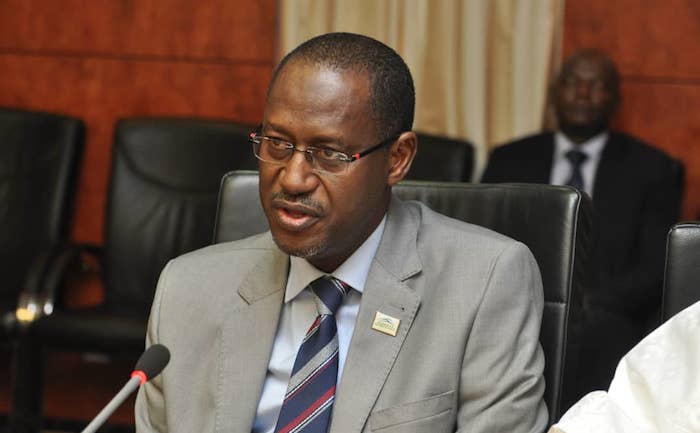The minister of housing and urban development, Arc. Ahmed Musa Dangiwa, has decried the failure of most states to adopt and implement the Urban and Regional Planning Law more than 30 years after its passage.
Dangiwa, who made this comment while speaking at the national colloquium on the Implementation of the Urban and Regional Planning Law, organised by the Nigerian Institute of Town Planners (NITP) in Abuja, described the situation as a major setback to Nigeria’s quest for orderly and sustainable urban growth.
While expressing concern that only two states, including Katsina, have domesticated the landmark legislation since its enactment in 1992, he stated: ‘It is regrettable that more than three decades after the promulgation of this progressive law, only two states, including my home state of Katsina, have adopted and operationalised it. This has contributed to the uncoordinated growth of our cities, the proliferation of informal settlements, and widening gaps between planning ideals and urban realities,” Dangiwa said.
He commended the Nigerian Institute of Town Planners for convening the colloquium, describing it as timely and essential for national reflection on how to revitalise planning practice as a tool for sustainable development.
The minister explained that the 1992 Urban and Regional Planning Law was a bold reform that replaced the obsolete 1946 Town and Country Planning Law, providing, for the first time, a comprehensive framework for land use and physical development across all tiers of government.
However, he lamented that weak institutional capacity, inadequate manpower, poor intergovernmental coordination, and low public awareness have hindered its implementation.
Dangiwa further stated that the realities of rapid urbanisation, climate change, and technological advancement have further outpaced the provisions of the law, making its review and update both urgent and necessary.
The minister reaffirmed that under President Bola Ahmed Tinubu’s Renewed Hope Agenda, the Federal Ministry of Housing and Urban Development was committed to driving the nationwide adoption, domestication, and effective implementation of the law.
He added that the Ministry was also reviewing and modernising the legislation to align with current realities and emerging global standards in spatial and physical planning.
“We are determined to ensure that every state of the Federation adopts and operationalises this law. Urban and regional planning is not a theoretical exercise — it is the backbone of sustainable growth, efficient infrastructure, and social well-being,” he said.
LEADERSHIP’s checks reveal that the Urban and Regional Planning Law (Decree 88 of 1992, Cap. 138 LFN 2004) was designed to standardise land use planning, zoning, and development control across Nigeria, with the aim of curbing unplanned growth and guide infrastructure investments.
The 1992 reform replaced the 1946 Town and Country Planning Law, which many practitioners viewed as outdated, given Nigeria’s rapid urbanisation since the 1980s.
Currently, only two states have domesticated the law, underscoring a broader governance gap between federal planning ambitions and subnational implementation capacity.
The lack of domestication contributes to: Uncoordinated urban development and haphazard land-use decisions; proliferation of informal settlements and the conversion of green or greenfield areas into built environments without comprehensive master plans; and misalignment between planning ideals and on-the-ground realities in rapidly growing cities.
The minister highlighted that the Ministry was reviewing and modernising the legislation to reflect climate resilience, urban technology, and contemporary spatial planning standards.
Ongoing actions under the Renewed Hope Agenda include finalising the National Urban Development Policy, National Physical Planning Standards, and the National Policy on Rural Settlements Planning and Development, and aligning these frameworks with emerging global standards in spatial planning and data-driven governance.
The planned updates aim to harmonise planning across all tiers of government and improve intergovernmental coordination.
Capacity and Implementation Challenges
Key obstacles cited include weak institutional capacity within state and local governments to enforce planning laws, inadequate professional manpower in planning departments, fragmented intergovernmental coordination, funding constraints, and limited public awareness of planning standards and development control processes.
The Minister called for enhanced capacity-building, better funding for planning authorities, and public education campaigns to improve compliance.
Dangiwa disclosed that, as part of its reform agenda, the Ministry has completed the review of the National Urban Development Policy, approved by the Federal Executive Council (FEC), and is finalising the National Physical Planning Standards and the National Policy on Rural Settlements Planning and Development to promote balanced regional development and reduce migration pressures on urban centres.




